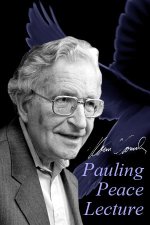Abstract

“Prospects for World Order” Watch Video
Speaking on the fiftieth anniversary of the founding of the United Nations, Chomsky offers a radical analysis of the evolution of international relations throughout the twentieth century, paying special attention to the utopian viewpoints often represented by the UN from its birth following World War II. Chomsky argues that the UN and its ideals were commonly subverted by a viewpoint that, to scholars of international relations, came to be known as "Realism." Chomsky borrows from the English economist Adam Smith in suggesting that "the principle architects of [Realist] state policy design it to ensure that their own interests are most peculiarly attended to, however grievous the impact on others, including the people of their own country." In broadly reviewing the history of First World/Third World relations, Chomsky concludes that the Realist point of view has increasingly come to be represented by "transnational corporations and financial institutions that dominate the domestic...[and] international economy, and hence its politics as well." Having achieved a largely-dominant posture over more utopian ideals, the Realist world order has, in Chomsky's view, condemned the majority of the world's peoples "to serve and to suffer." Chomsky suggests that the rhetorical idealism represented by the United Nations - at least at the time of its founding - faded in part because of the institution's own internal flaws, as well as the overwhelming power of the institutions - chief among them the United States - sustaining the Realist world order.

Audience Question and Answer Session Watch Video
In a question and answer session spanning nearly fifty minutes, Chomsky touches upon a wide variety of subjects. Of particular interest is Chomsky's comparison of media coverage of two violent conflicts contemporary to his talk - Sarajevo in the former Yugoslavia, and Kuito in Angola. Chomsky also discusses the roots of socio-economic dysfunction in Haiti, the presidential candidacy of Ross Perot and the effectiveness of grassroots social action. Chomsky concludes the question and answer period with a long analysis of the U.S. government's "war on drugs."
Related Names: Linus Pauling, Ava Helen Pauling


